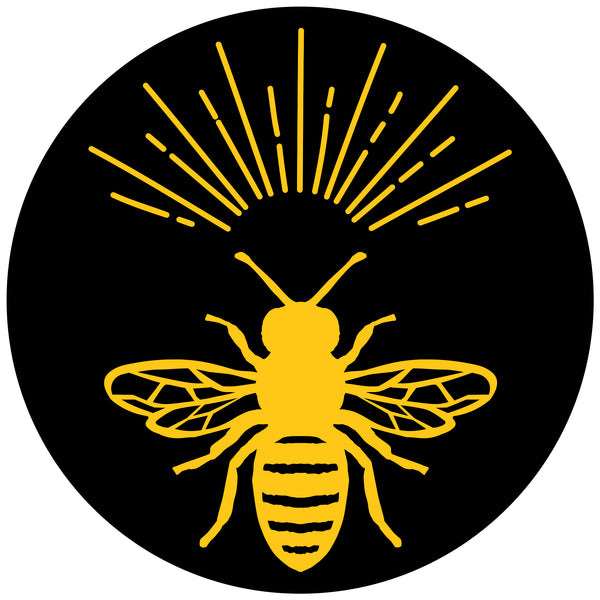FAQs
What is bee pollen?
Bee pollen is a mixture of flower pollen, bee secretions, nectar, and wax collected by bees as they travel from flower to flower. It's rich in various nutrients, including vitamins, minerals, proteins, and carbohydrates.
What nutrients are in bee pollen?
Bee pollen contains proteins, amino acids, vitamins (particularly B-complex, C, and E), minerals (such as magnesium, calcium, and potassium), carotenoids, polyphenols, and fatty acids. The exact profile varies depending on the plants the bees forage from.
What are the potential benefits of bee pollen?
Potential benefits may include:
- Boosting immunity
- Reducing inflammation
- Promoting wound healing
- Providing antioxidants
- Supporting heart health
Can bee pollen help with allergies?
Some people believe local bee pollen may help reduce seasonal allergy symptoms through a process similar to immunotherapy. However, scientific evidence is limited, and bee pollen can actually trigger allergic reactions in sensitive individuals. It’s important to consult your healthcare provider first.
What does bee pollen taste like?
Bee pollen has a naturally floral, earthy, and slightly sweet taste. The flavor can range from honey-like to nutty or tangy, depending on the foraged plants.
How should I take bee pollen?
Bee pollen is typically taken orally. For adults, a common dose is 3-5 teaspoons per day, while children may take 1-2 teaspoons. It's often recommended to start with small amounts and gradually increase the dose.
Who should avoid bee pollen?
- People with pollen allergies
- Pregnant or breastfeeding women
- Children under 2 years old
- Those taking blood-thinning medications like warfarin
Can bee pollen interact with medications?
Yes, bee pollen may interact with blood-thinning medications like warfarin. Always consult with your healthcare provider before starting bee pollen if you're on any medications.
Can children take bee pollen?
Children over 2 years old can consume bee pollen, but it should be introduced carefully and in very small amounts to watch for any allergic reactions. Always consult a pediatrician before giving bee pollen to children.
How should bee pollen be stored?
Keep it in a cool, dry place. For maximum freshness, store in the fridge or freezer.
Is bee pollen safe for everyone?
No, bee pollen is not safe for everyone. People with allergies to pollen, bee stings, or honey should be especially cautious. Always consult with a healthcare provider before starting any new supplement.
How do I know if I’m allergic to bee pollen?
Allergic reactions may include itching, swelling, hives, shortness of breath, or anaphylaxis in severe cases. If you’re unsure, start with a tiny amount (like one granule) and monitor your body’s response. If you have a history of pollen or bee allergies, avoid bee pollen entirely unless cleared by a doctor.
How can I incorporate bee pollen into my diet?
Bee pollen can be added to smoothies, yogurt, sprinkled over cereal, oats, porridge, pancakes, waffles, salads and roasted vegetables. You can enjoy it in hot tea as a light sweetener.
Why is Bee Pollen dry and crunchy?
Fresh bee pollen can be moist and chewy, however, we sell dried bee pollen for a very good reason.
Commercially available bee pollen is usually dried to reduce its moisture content (to about 4%), making it crunchy or firm. Drying prevents spoilage and preserves the pollen for storage and shipping.
If bee pollen is too wet, it can spoil quickly and may start to grow mold. For this reason, moist pollen is typically consumed quickly or stored frozen. If you plan to store bee pollen for any length of time, it's usually best to keep it dry or frozen.
Is bee pollen raw?
Yes, bee pollen is often sold raw and unprocessed after drying. This helps preserve its natural enzymes and nutrients. However, it is not pasteurized, so individuals with compromised immune systems should use caution.
Why does the flavour vary?
Each jar is unique because bees collect pollen from different flowers each season. Rainfall, climate, and flora all influence the taste.
Is bee pollen the same as honey or propolis?
No, bee pollen is different. Honey is primarily a carbohydrate-rich food made from nectar, while propolis is a resin-like substance bees use to seal and sterilize their hives. Bee pollen consists of flower pollen mixed with nectar and bee enzymes, offering a higher concentration of proteins and micronutrients.
Is bee pollen vegan?
Bee pollen is generally not considered vegan because it is a direct product of bee activity. However, many vegetarians choose to include it in their diet.
Can bee pollen help with energy and athletic performance?
Some athletes use bee pollen as a natural energy booster given its dense nutrient profile and amino acids. While studies are limited, anecdotal reports suggest it may help with endurance and recovery.
